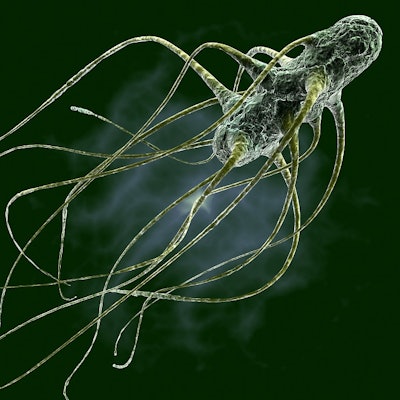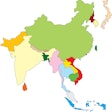
The U.S. Department of Agriculture (USDA) Food Safety and Inspection Service’s (FSIS) proposed regulatory framework for Salmonella in poultry products has received some criticism, primarily from the National Chicken Council (NCC).
The broiler trade association’s Senior Vice President of Scientific and Regulatory Affairs, Dr. Peterson, raised concerns about each of the three components of the framework.
1. Requiring incoming flocks be tested for Salmonella before entering an establishment
“This component risks reverting to a long-abandoned command-and-control approach whereby FSIS inspectors make decisions about how plants operate,” said Peterson arguing that the framework will take the plants out of the decision-making process.
“In this time of extreme inflation coupled with ongoing food security challenges, a command-and-control approach will do nothing to improve public health,” said Peterson, “it will only remove chicken from the meat case.”
2. Enhancing establishment process control monitoring and FSIS verification
“The industry is and should be expected to control potential pathogens, but there is not a one-size-fits-all approach in doing so,” said Peterson. “Overall, this approach will stymie innovation and technology which seems counter to a collaborative food safety approach.”
In other words, Peterson is saying that since plants operate differently and have varying challenges, a single framework will not work for everyone and could keep some plants from increasing efficiency and safety.
3. Implementing an enforceable final product standard
“We do not believe that the Poultry Products Inspection Act provides statutory authority to create an enforceable, adulteration-based final product standard for Salmonella in raw poultry,” said Peterson. “After scientifically determining the impact on public health, FSIS could consider a quantitative approach and give industry the opportunity to meet an enumerative performance standard.”
According to Peterson, the NCC will continue to discuss the parameters of the framework and is “hopeful we can come up with a science-based, data-driven approach that will not only improve public health but also ensure that consumers of America’s favorite protein still have an affordable product available to feed their families.”
They still have plenty of time as the FSIS plans to finalize the framework by 2024.


















